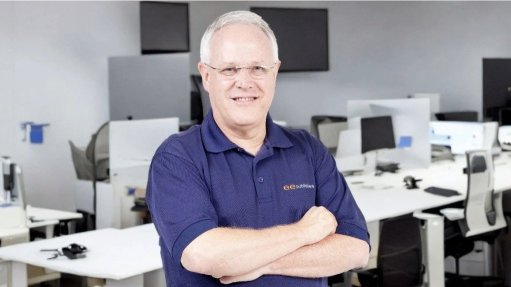Significant funding required to positively undertake Just Energy Transition – report
The second of three reports looking into South Africa’s energy transition, released by the African Climate Foundation (ACF) this week, finds that significant amounts of funding will be required to promote positive social outcomes and to prevent a deterioration in poverty and unemployment that a completely unmanaged transition would bring about.
South Africa is in the process of transitioning from a majority of its baseload generation fleet being coal-fired, to an increasingly renewable energy-supported grid.
This transition has implications for patterns of ownership and employment, such as which party stands to be positively impacted and which is likely to be negatively impacted, with thousands of livelihoods dependent on the coal sector.
These questions are investigated in the second of three reports, titled ‘Funding social justice in the energy transition’, released by the ACF and produced by Intellidex.
The series looks at achieving the scale in South Africa’s energy transition that is required, particularly from a financing perspective.
The first report released by the ACF looked at reforms needed to achieve scale for a range of funding needs, including for mitigation.
The second and latest report also reveals that the scale of financing required necessitates the greater involvement of private capital to complement the efforts of the State – often with the two structured in innovative ways side-by-side.
At present, the ACF’s report highlights that, if nothing changes, mobilising the volumes of funding required will continue to prove challenging against the backdrop of a constrained fiscus.
ACF executive director Saliem Fakir says many stakeholders and funders of South Africa’s transition at home and abroad are keenly focused on ensuring a Just Energy Transition (JET).
However, he adds that the “nuts and bolts” of achieving these outcomes, particularly over the time periods involved, are still a work in process.
“The release of this report today goes into detail on the changes and reforms required to get private sector capital – structured in some cases in innovate ways – to start to flow,” says Fakir.
The report recommends several areas of action to mobilise more financing, including the incorporation of the JET – and specifically the J – into existing environmental, social and governance (ESG) strategies of financial institutions and companies, while also adopting an approach to ESG investing that sees it as an opportunity to improve ESG outcomes in society rather than manage ESG risks coming from society.
The report also recommends place-based impact investing to foster local economic development, and that asset managers will need to harness their capacities for innovation in the design of new investment vehicles such as JET funds and transition bonds with appropriate lessons learnt quickly.
Similarly, the report suggests that financial institutions can play a large role in broadening access to renewable energy beyond industry and gated residential estates by designing equitable financial products for lower-income consumers.
Further, millions of people require skills training that equips them for participation in the green economy.
In this regard, the report recommends that foundations, investors, employers and government should join forces in the implementation of pay-for-performance skills and employment services programmes for employment in the green economy.
Pay-for-performance structures are likely to be key in scaling funding for otherwise hard-to-fund initiatives.
The final recommendation of the report is for community trusts to become active financial actors that build and diversify their asset holdings, expanding their ownership in the green economy and increasing their contributions to local economic development in small towns and rural areas.
But the report’s authors emphasise that much of this is new, not only in South Africa, and this complicates greater private sector participation in the JET.
“We should not underestimate the hard work and innovation required to achieve funding of JET at scale – without which we will be left only with some interesting small funding pilots and small innovative case studies rather than a broader, dynamic funding ecosystem,” says Intellidex project principal and MD Peter Montalto.
Building this ecosystem through an iterative process of trial and error and continuous learning is a critical precondition for the large-scale flow of funds that will be required.
Article Enquiry
Email Article
Save Article
Feedback
To advertise email advertising@creamermedia.co.za or click here
Press Office
Announcements
What's On
Subscribe to improve your user experience...
Option 1 (equivalent of R125 a month):
Receive a weekly copy of Creamer Media's Engineering News & Mining Weekly magazine
(print copy for those in South Africa and e-magazine for those outside of South Africa)
Receive daily email newsletters
Access to full search results
Access archive of magazine back copies
Access to Projects in Progress
Access to ONE Research Report of your choice in PDF format
Option 2 (equivalent of R375 a month):
All benefits from Option 1
PLUS
Access to Creamer Media's Research Channel Africa for ALL Research Reports, in PDF format, on various industrial and mining sectors
including Electricity; Water; Energy Transition; Hydrogen; Roads, Rail and Ports; Coal; Gold; Platinum; Battery Metals; etc.
Already a subscriber?
Forgotten your password?
Receive weekly copy of Creamer Media's Engineering News & Mining Weekly magazine (print copy for those in South Africa and e-magazine for those outside of South Africa)
➕
Recieve daily email newsletters
➕
Access to full search results
➕
Access archive of magazine back copies
➕
Access to Projects in Progress
➕
Access to ONE Research Report of your choice in PDF format
RESEARCH CHANNEL AFRICA
R4500 (equivalent of R375 a month)
SUBSCRIBEAll benefits from Option 1
➕
Access to Creamer Media's Research Channel Africa for ALL Research Reports on various industrial and mining sectors, in PDF format, including on:
Electricity
➕
Water
➕
Energy Transition
➕
Hydrogen
➕
Roads, Rail and Ports
➕
Coal
➕
Gold
➕
Platinum
➕
Battery Metals
➕
etc.
Receive all benefits from Option 1 or Option 2 delivered to numerous people at your company
➕
Multiple User names and Passwords for simultaneous log-ins
➕
Intranet integration access to all in your organisation


















